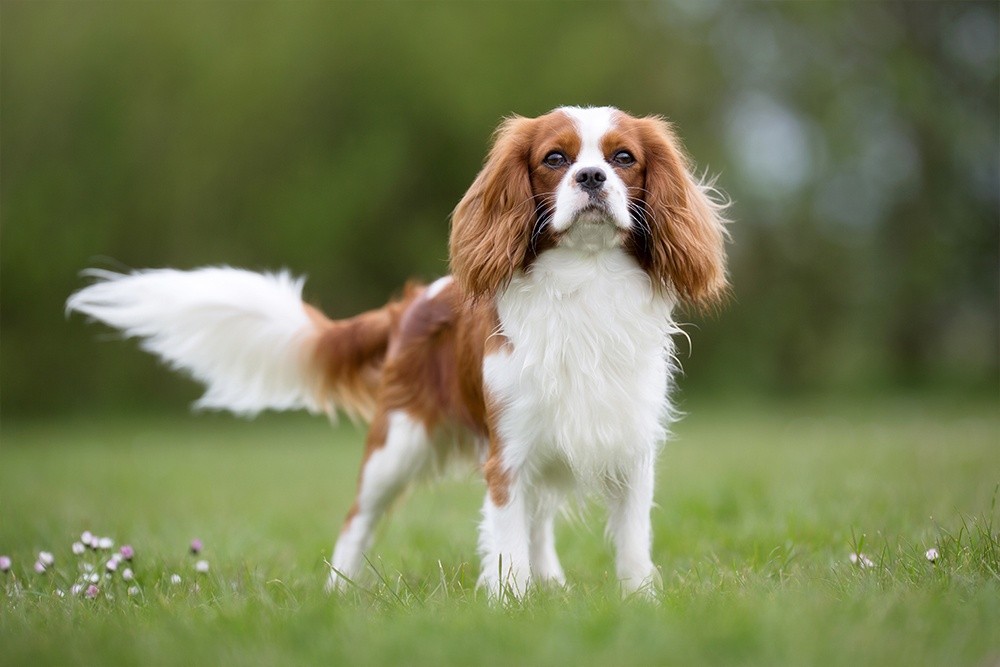
Despite their immense popularity as companion dogs, Cavalier King Charles Spaniels are not considered hypoallergenic. While no dog breed is completely hypoallergenic, these spaniels are moderate shedders that produce dander - the primary cause of allergic reactions in humans. Studies by the American College of Allergy, Asthma, and Immunology indicate that 10% of Americans are allergic to dogs, making this an important consideration for potential owners. Though regular grooming can help manage shedding and dander, those with dog allergies should explore breeds specifically recognized by the American Kennel Club as more suitable for allergy sufferers.
Cavalier King Charles Spaniels and Allergies
Allergy Considerations
According to research by the American College of Allergy, Asthma, and Immunology (ACAAI), approximately 10% of Americans are allergic to dogs. Cavalier King Charles Spaniels are not considered hypoallergenic dogs, as they produce dander and shed moderately throughout the year. The American Kennel Club does not include them on their list of breeds suitable for allergy sufferers.
Hybrid Options
For those seeking a more allergy-friendly alternative, crossing Cavaliers with hypoallergenic breeds can produce puppies that may be better tolerated by allergy sufferers. One such example is the Cavachon - a designer breed created by crossing a Cavalier King Charles Spaniel with a Bichon Frise, which is known to be more hypoallergenic than purebred Cavaliers.
Managing Shedding and Allergies
Shedding Management Strategies
While Cavalier King Charles Spaniels are moderate shedders, proper grooming can help minimize allergens. Their single-coat structure makes them easier to maintain compared to double-coated breeds. Regular brushing, deshedding tools, and scheduled baths help control loose fur and dander. Maintaining a consistent grooming schedule is essential since their silky, medium-length coat can become tangled and trap allergens if neglected.
Health Impact on Shedding
According to veterinary guidance, excessive shedding beyond normal levels may indicate underlying health issues. Diet quality and nutritional supplements can influence coat health and shedding patterns. While seasonal changes affect shedding somewhat, Cavaliers tend to shed consistently year-round rather than having distinct heavy shedding periods.
Alternative Solutions for Allergy Sufferers
Consulting Healthcare Professionals
Before getting a Cavalier King Charles Spaniel, consulting with healthcare providers is essential for those with dog allergies. Medical professionals can perform specific allergy tests and recommend personalized management strategies, which may include medications or immunotherapy treatments to help build tolerance.
Environmental Controls
While previous sections covered grooming and shedding management, environmental modifications can provide additional allergy relief. Using high-efficiency particulate air (HEPA) filters in the home, designating pet-free zones in bedrooms, and regularly cleaning upholstery can help minimize exposure to dander. Regular vacuuming and cleaning of areas where the Cavalier spends time is crucial for reducing allergen accumulation. Though these measures won't make a Cavalier hypoallergenic, they can help create a more manageable environment for individuals with mild to moderate allergies.
Conclusion
Cavalier King Charles Spaniels are definitively not hypoallergenic dogs, as they produce dander and shed moderately throughout the year. This makes them potentially problematic for the approximately 10% of Americans who suffer from dog allergies. While they have a single coat that is relatively easier to maintain compared to double-coated breeds, they still require regular grooming and shed consistently year-round.
For allergy sufferers interested in this breed, several management options exist, including considering Cavalier hybrid breeds like the Cavachon, implementing strict grooming routines, and making environmental modifications such as using HEPA filters and maintaining pet-free zones. However, those with dog allergies should consult healthcare providers before getting a Cavalier to assess their individual risk and develop appropriate management strategies. While these measures can help reduce exposure to allergens, they cannot make a Cavalier truly hypoallergenic.